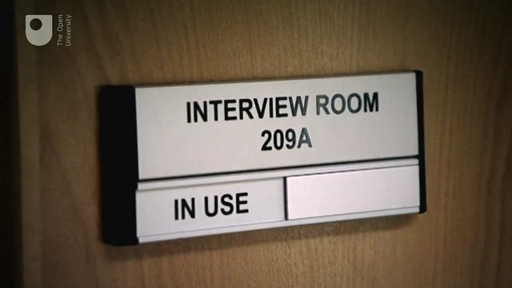2.1 Context reinstatement
Psychologists have found that people are usually able to remember more information if they are in the same place as when they learned or first encountered that information.
This phenomenon is known as ‘context reinstatement’ and it appears to improve the amount and accuracy of the evidence supplied by a witness quite robustly. This is because your surroundings can act to trigger memories, particularly if you are remembering an event that was shaped by your surroundings – such as a crime.
The positive effects of context reinstatement would suggest that all witnesses should be interviewed at the crime scene. In practice there are many problems with this, including that the witness may not feel safe; it would be hard to record the interview; and surroundings often change, e.g. lighting changes, people and objects move. To overcome these problems it is advised that the police officer asks the witness to ‘mentally reinstate the context of the crime’; that is, to picture the place where the crime occurred as clearly as possible in their mind. Mentally reinstating context seems to be a very effective way of getting witnesses to remember more information.
In the following video you can see a police officer using context reinstatement when interviewing a witness. In this case the officer gets the witness to draw a plan of the room in which the crime happened – which was a (staged) attack in a pub.

Transcript
Context reinstatement, and three other memory-enhancing techniques, were incorporated into an investigative training manual by psychologists Ron Fisher and Ed Geiselmain in 1992. The manual described a process for interviewing known as ‘the cognitive interview’ and it became the accepted basis for interviewing witnesses.
